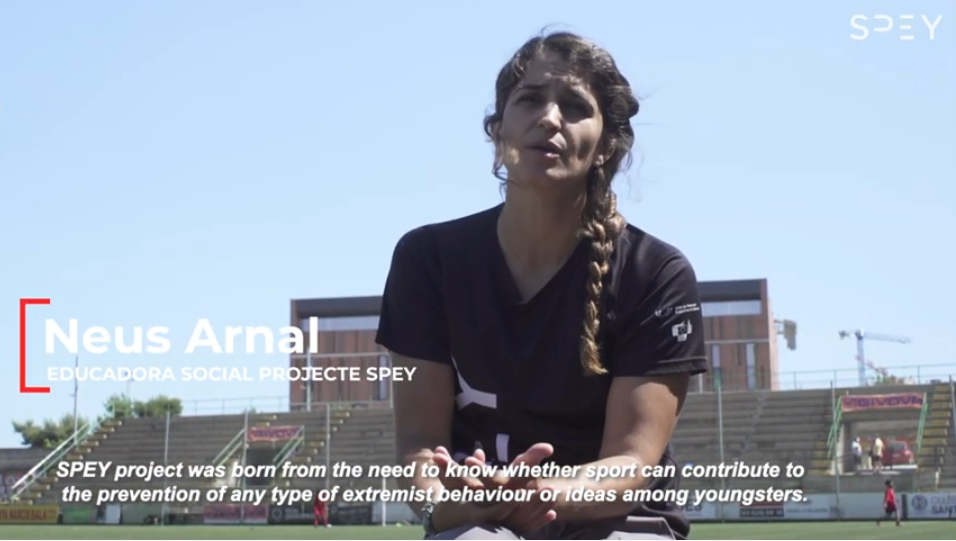
Neus Arnal, social educator of the SPEY project, tells us what the educational and sports project is about and how the socio-sports programme is being developed.
How should we work from the sports sector together with the social world to stop the acquisition of extreme ideas or behaviours among young people?
What we see most in the project is the pro-social support network that has been generated through the SPEY educational and sports program.
SPEY project was born from the need to know whether sport can contribute to the prevention of any type of extremist behaviour or ideas among youngsters. It is well known that sport can be a space for catalysing the prejudices that youngsters have towards the adoption of ideas or extreme behaviours.
What we want to know with this project is how we should work from the sport sector, together with the social sector, to serve as a barrier to the acquisition of ideas or extreme behaviours among young people.
The truth is that it has worked so well and I believe that the most important thing that we have achieved with the project, or at least, the most obvious one, is the pro-social support network that has been generated through the educational and sportive SPEY programme.
The educational programme is based on the 3N theory. This theory affirms that, in any process of adoption of ideas or extreme behaviours, the needs, the narratives and the “networks” i.e. the nets intervene.
In the video, Neus Arnal, social educator of the SPEY project, explains the 3 phases of the programme:
- PHASE 1: The educational process of SPEY contemplates a first phase in which the youngsters express what they receive as harm and oppression, we work on them and then come to the next phase, which are the narratives.
- PHASE 2:In this second phase, we work on how these needs are transformed into narratives that, very often respond to the idea of “us against you”. We work on these narratives to get to the next stage of the process, which are nets.
- PHASE 3:On this third phase of “networks”, we take these needs, structured under these narratives, so that young people can, in their own ways of structuring and acting, feel that they belong to a pro-social project or create one. This project should channel all these needs towards something greater, i.e. better.
About the SPEY project
The SPEY project (Sport for the Prevention of Extremism in Youth) started in February 2020 led by the Union of Sports Federations of Catalonia. The project, co-financed by the European Commission, has a duration of 30 months, and has the support of 7 countries and 9 ‘partners’, including the Confederation of Sports of Sweden, the Union of Federations of Latvia, the International Council of Sport and Physical Education of Germany, the City Council of Gondomar of Portugal, the Ministry of Culture and Sport of Greece, the French ‘think tank’ Sport and Citizenship, and the University of Córdoba.
++++++++ Follow us on Twitter: https://twitter.com/speyproject